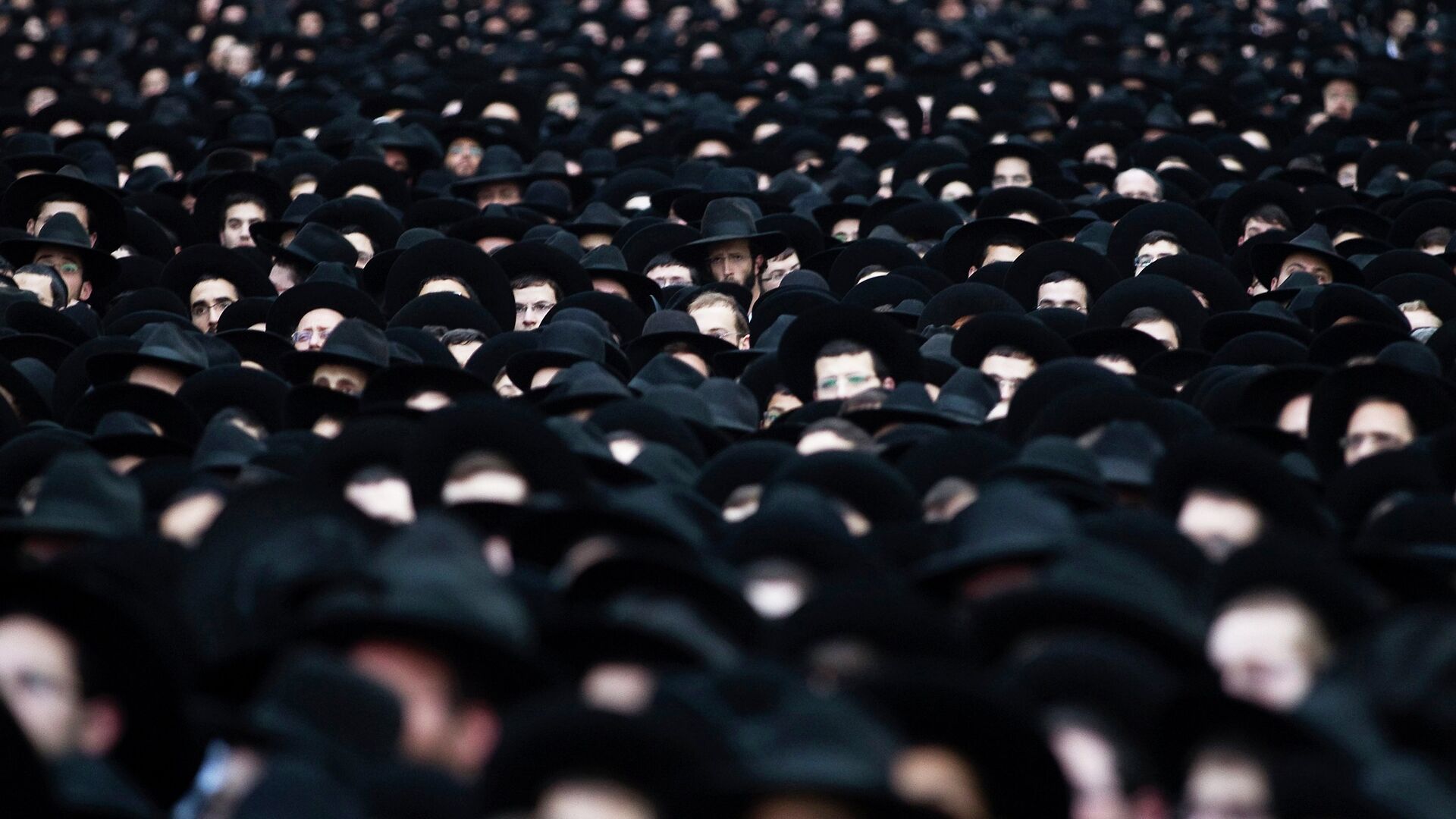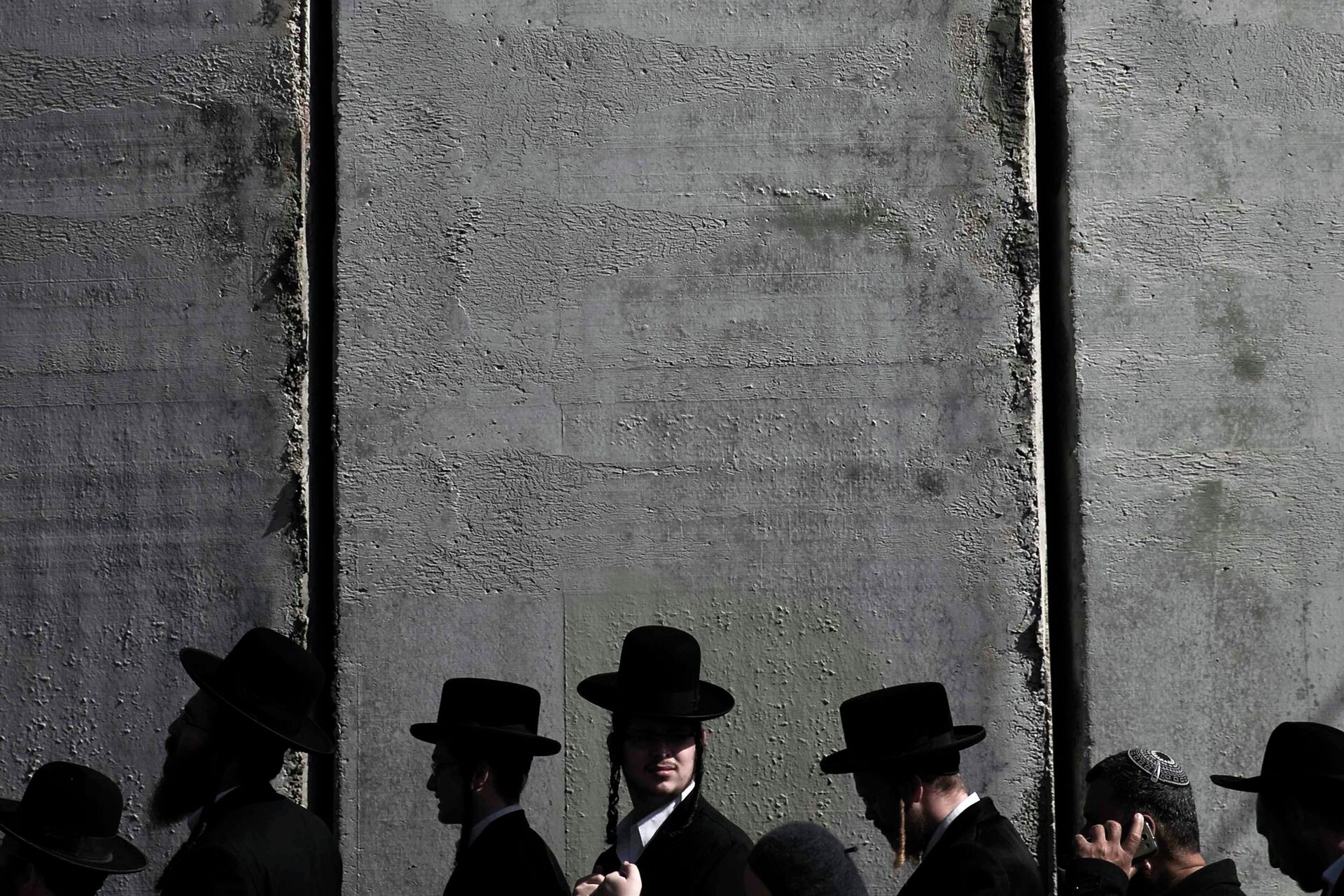https://sputnikglobe.com/20211215/metoo-movement-reaches-israels-haredi-community-but-majority-still-wont-break-silence--1091534535.html
#MeToo Movement Reaches Israel's Haredi Community But Majority Still Won't Break Silence
#MeToo Movement Reaches Israel's Haredi Community But Majority Still Won't Break Silence
Sputnik International
The #MeToo movement might have been grabbing the world's attention since 2017, but in Israel's Haredi community it is still an emerging phenomenon.
2021-12-15T08:18+0000
2021-12-15T08:18+0000
2023-01-15T17:25+0000
middle east
sexual abuse
haredi
me too
israel
https://cdn1.img.sputnikglobe.com/img/101942/52/1019425218_0:89:3082:1823_1920x0_80_0_0_f48d9d5e8e14ffca81134046f4c027ab.jpg
The #MeToo movement might have been grabbing the world's attention since 2017, but in Israel's Haredi community it is still an emerging phenomenon.Silence and Lack of ReportingAaron Rabinowitz, a Haredi journalist who has interviewed dozens of sexual abuse victims and who has won a prize for his work, says it is still difficult to "assess the scope and the magnitude" of the phenomenon, simply because the majority of those assaults are never reported.It is not really clear how many Haredi women, men, and children are sexually attacked but in 2014 it was revealed that the number of assaults in Israel was 10 percent higher than in any other OECD country.Winds of ChangeBut things are gradually changing. Rabinowitz says in part this is due to the #MeToo movement that gave victims the courage to talk about it. Another factor is the mass media, including in Haredi society, that became more open to covering such stories.One of the most vivd examples has been that of Yehuda Meshi Zahav, a famous social activist and the founder of ZAKA, an organisation that provides emergency response teams. In March, following the investigation by Rabinowitz and his colleague Shira Elek who interviewed dozens of men and women, the police decided to open a probe into the alleged crimes of the 62-year-old. They included allegations of rape and paedophilia.Another bombshell was dropped in November when Rabinowitz revealed the name of a yet another well-known Haredi, who was accused of sex crimes.Chaim Walder, a famous children's writer and educator, is said to have abused dozens of teens and Rabinowitz says he has collected hundreds of stories from women, who decided to break their silence.Not EnoughIn 2014, the Israeli police employed 16 Haredi investigators, whose aim was to expose violators and criminals, a drop in the bucket for a country that registers hundreds of attacks per day.The country's healthcare organisations operate hotlines and provide services to Haredi men, women, teens, and children exposed to sexual abuse. NGOs also assist with medical and psychological help. Teachers receive special training aimed at assisting in such cases. But Rabinowitz says those initiatives have been carried out on a private level. They were not part of the broader system.As somebody who exposed the names of two major figures in the Haredi community and who collected hundreds of testimonials, Rabinowitz wants to continue raising awareness. But what he also wants is to get the spiritual leaders of the Ultra-Orthodox sector to acknowledge the problem publicly and find ways to tackle the issue.Following his investigation, Rabinowitz has already been summoned by one of the leading rabbis in Bnei Brak, one of the Ultra-Orthodox community's strongholds. He says he has gotten support but is not willing to stop there.
israel
Sputnik International
feedback@sputniknews.com
+74956456601
MIA „Rossiya Segodnya“
2021
News
en_EN
Sputnik International
feedback@sputniknews.com
+74956456601
MIA „Rossiya Segodnya“
Sputnik International
feedback@sputniknews.com
+74956456601
MIA „Rossiya Segodnya“
israel, #metoo, haredi community, ultra-orthodox community, sexual abuse, aaron rabinowitz
israel, #metoo, haredi community, ultra-orthodox community, sexual abuse, aaron rabinowitz
#MeToo Movement Reaches Israel's Haredi Community But Majority Still Won't Break Silence
08:18 GMT 15.12.2021 (Updated: 17:25 GMT 15.01.2023) The conservative community refrains from talking about sexual assault. Those who report incidents to the authorities risk losing their reputation, and this often means the culprits go unpunished.
The #MeToo movement might have been grabbing the world's attention since 2017, but in Israel's Haredi community it is still an emerging phenomenon.
Silence and Lack of Reporting
Aaron Rabinowitz, a Haredi journalist who has interviewed dozens of sexual abuse victims and who has won a prize for his work, says it is still difficult to "assess the scope and the magnitude" of the phenomenon, simply because the majority of those assaults are never reported.
"Ultra-Orthodox society is conservative and as such it implies harsh penalties on those who dare to complain. Reporting to the authorities often means a marred reputation not only for the victim but also for their family. This is why people prefer to keep it quiet".
It is not really clear how many
Haredi women, men, and children are sexually attacked but in 2014 it was revealed that the number of assaults in Israel was 10 percent higher than in any other OECD country.
But things are gradually changing. Rabinowitz says in part this is due to the #MeToo movement that gave victims the courage to talk about it. Another factor is the mass media, including in Haredi society, that became more open to covering such stories.
One of the most vivd examples has been that of Yehuda Meshi Zahav, a famous social activist and the founder of ZAKA, an organisation that provides emergency response teams. In March, following the investigation by Rabinowitz and his colleague Shira Elek who interviewed dozens of men and women, the police decided to
open a probe into the alleged crimes of the 62-year-old. They included allegations of rape and paedophilia.
Another bombshell was dropped in November when Rabinowitz revealed the name of a yet another well-known Haredi, who was accused of sex crimes.
Chaim Walder, a famous children's writer and educator, is said to have
abused dozens of teens and Rabinowitz says he has collected hundreds of stories from women, who decided to break their silence.
"We are now seeing that more and more rabbis are aware of the phenomenon. More and more encourage victims to go and file a complaint with the police or to seek medical and psychological attention. We are now in a relatively good position, compared to what it was in the past but what we have today is far from being ideal".
In 2014, the Israeli police employed 16 Haredi investigators, whose aim was to expose violators and criminals, a drop in the bucket for a country that
registers hundreds of attacks per day.The country's healthcare organisations operate hotlines and provide services to Haredi men, women, teens, and children exposed to sexual abuse. NGOs also assist with medical and psychological help. Teachers receive special training aimed at assisting in such cases. But Rabinowitz says those initiatives have been carried out on a private level. They were not part of the broader system.
"There is not enough awareness in this country in general and in the Haredi community in particular. The rabbis might be advising individuals to seek assistance but they will never speak out about it publicly. And as long as they keep it quiet, there won't be any solution", argued the journalist.
As somebody who exposed the names of two major figures in the Haredi community and who collected hundreds of testimonials, Rabinowitz wants to continue raising awareness. But what he also wants is to get the spiritual leaders of the Ultra-Orthodox sector to acknowledge the problem publicly and find ways to tackle the issue.
Following his investigation, Rabinowitz has already been summoned by one of the leading rabbis in Bnei Brak, one of the Ultra-Orthodox community's strongholds. He says he has gotten support but is not willing to stop there.
"I hope more rabbis will follow suit. Right now it is a quiet revolution and I hope it will expand with time".


